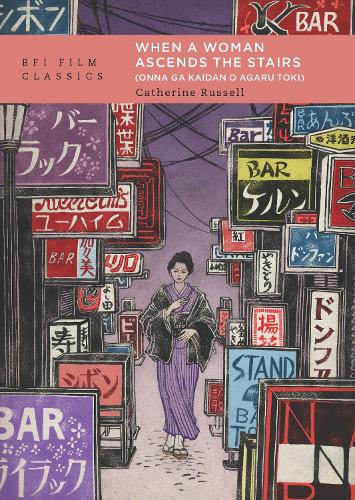
When a Woman Ascends the Stairs (Onna ga kaidan o agaru toki)
(Paperback)
Publishing Details
When a Woman Ascends the Stairs (Onna ga kaidan o agaru toki)
By (Author) Professor Catherine Russell
Bloomsbury Publishing PLC
BFI Publishing
1st May 2025
United Kingdom
Classifications
Tertiary Education
Non Fiction
Film history, theory or criticism
Film guides and reviews
Physical Properties
Paperback
88
Width 135mm, Height 190mm
Description
Mikio Naruse's When A Woman Ascends The Stairs (1960) combines high melodrama with modernist film language, telling the story of Keiko, a bar hostess struggling to succeed in Tokyo's Ginza district. Catherine Russell's study of the film provides an in-depth analysis of Naruse's distinctive filmmaking, from his use of two-shots in confined spaces, unique lighting techniques, and his "invisible" and "rhythmic" editing style. She analyses the recurring motif of a womans white-stockinged feet climbing stairs, considering how this symbolizes the social dynamics of the high-class Japanese sex industry that sustains hostess bar culture. Russell goes on to argue that the film is a late womans film which engages with the institutional barriers to womans success in postwar Japan. She situates the film within the trajectory of Naruse's career and analyses how his social critique is balanced with an aestheticization of a harsh and brutally gendered world, creating an affective tension that is symptomatic of Naruse's own position as an industrial worker.
Author Bio
Catherine Russell is Professor of Film Studies at the Mel Hoppenheim School of Cinema at Concordia University, Canada. She is author of Classical Japanese Cinema Revisited (Bloomsbury Academic, 2011) and The Cinema of Naruse Mikio: Women and Japanese Modernity (2008).
